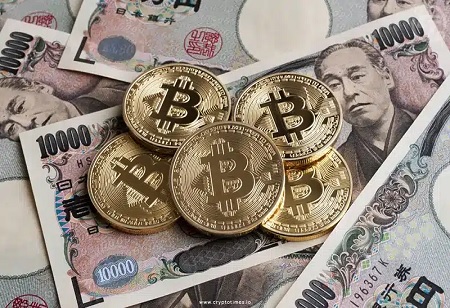
Japanese Yen Rallies 160 to the Dollar, Asian Stocks Climb Ahead of Fed Decision

 The Japanese yen saw a strengthening trend, rebounding from its earlier dip to 160 against the U.S. dollar as most stocks in the Asia-Pacific region advanced. The yen surged approximately 1.6%, settling around 155.8 after briefly hitting 160.03 earlier in the trading session. The Bank of Japan opted to maintain interest rates at their current levels. It's worth noting that Japan's stock markets remained closed due to a public holiday.
The Japanese yen saw a strengthening trend, rebounding from its earlier dip to 160 against the U.S. dollar as most stocks in the Asia-Pacific region advanced. The yen surged approximately 1.6%, settling around 155.8 after briefly hitting 160.03 earlier in the trading session. The Bank of Japan opted to maintain interest rates at their current levels. It's worth noting that Japan's stock markets remained closed due to a public holiday.
Ahead of the Federal Reserve's meeting this week, traders are focusing on recent data indicating higher-than-anticipated U.S. inflation. March's core personal consumption expenditures, excluding food and energy, increased by 2.8% compared to the previous year, surpassing the Dow Jones' forecast of 2.7%. Additionally, personal spending saw a rise of 0.8%, exceeding the estimated 0.7%.
In Asia, investors anticipate the release of China's official purchasing managers index for April before the Labor Day holiday on Wednesday. Additionally, Japan's industrial production and retail sales data for March are also awaited. Australia's S&P/ASX 200 index showed a rebound of 0.84% from Friday's losses. South Korea's Kospi index climbed 0.86%, while the small-cap Kosdaq index gained 1.02%.
Hong Kong's Hang Seng index saw a gain of 1.29%, while China's CSI 300 index increased by 1.40%. U.S. stocks surged on Friday, with both the S&P 500 and Nasdaq Composite posting their strongest weekly performance since November, driven by a rally in Big Tech stocks following robust earnings reports. The S&P 500 rose by 1.02%, while the Nasdaq Composite, which is heavily weighted towards technology companies, experienced a notable jump of 2.03%, marking its most significant single-day gain since February. The Dow Jones Industrial Average also saw an increase of 0.4%.
The Japanese yen depreciated to 158.43 against the U.S. dollar, reaching a new 34-year low. Following its monetary policy meeting, the Bank of Japan decided to maintain interest rates unchanged and reaffirmed its commitment to conducting bond purchases as per the decision made in March. BOJ Governor Kazuo Ueda remarked later in the day that any significant impact of yen movements on Japan's economy might prompt a policy adjustment.

